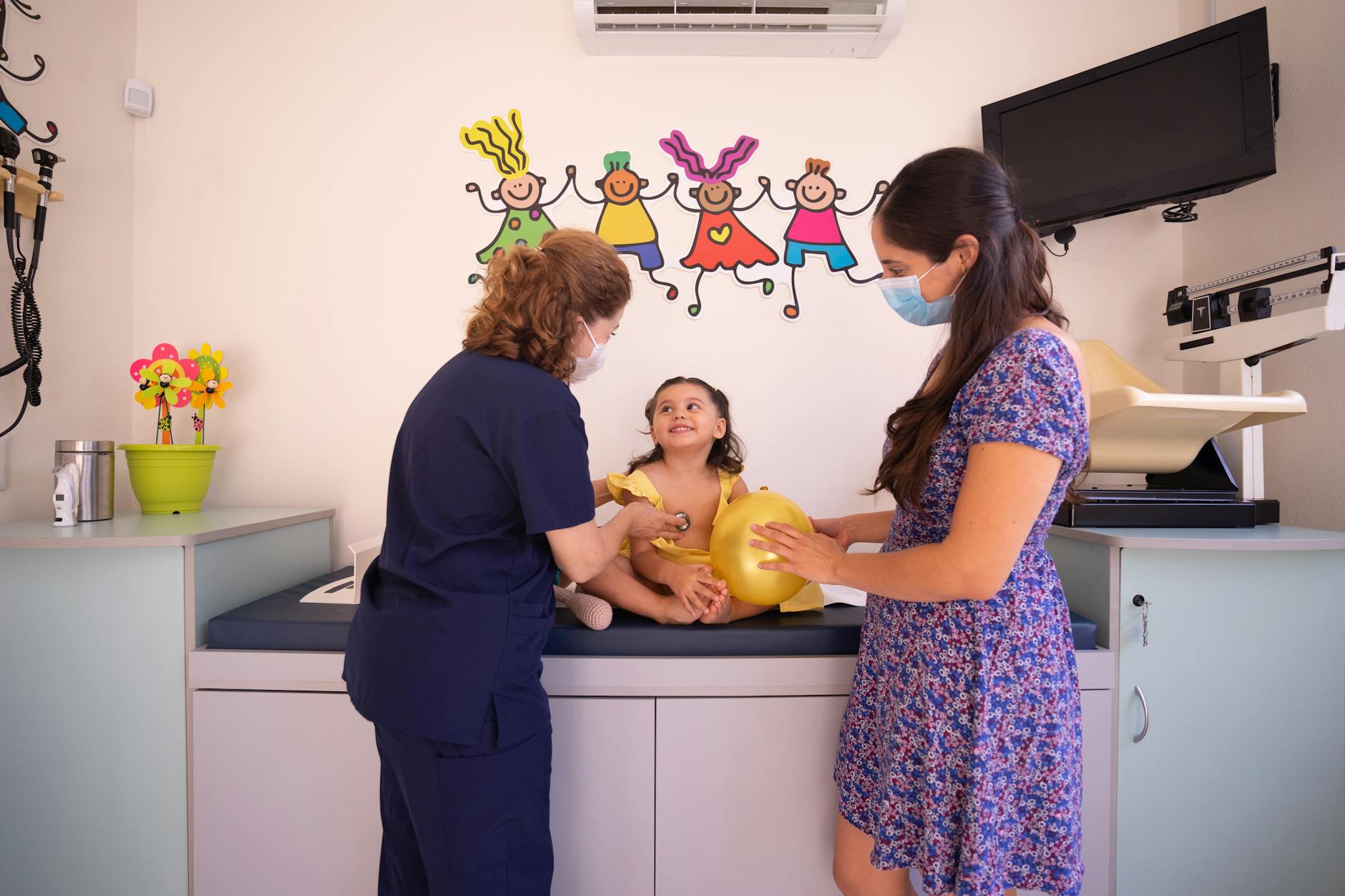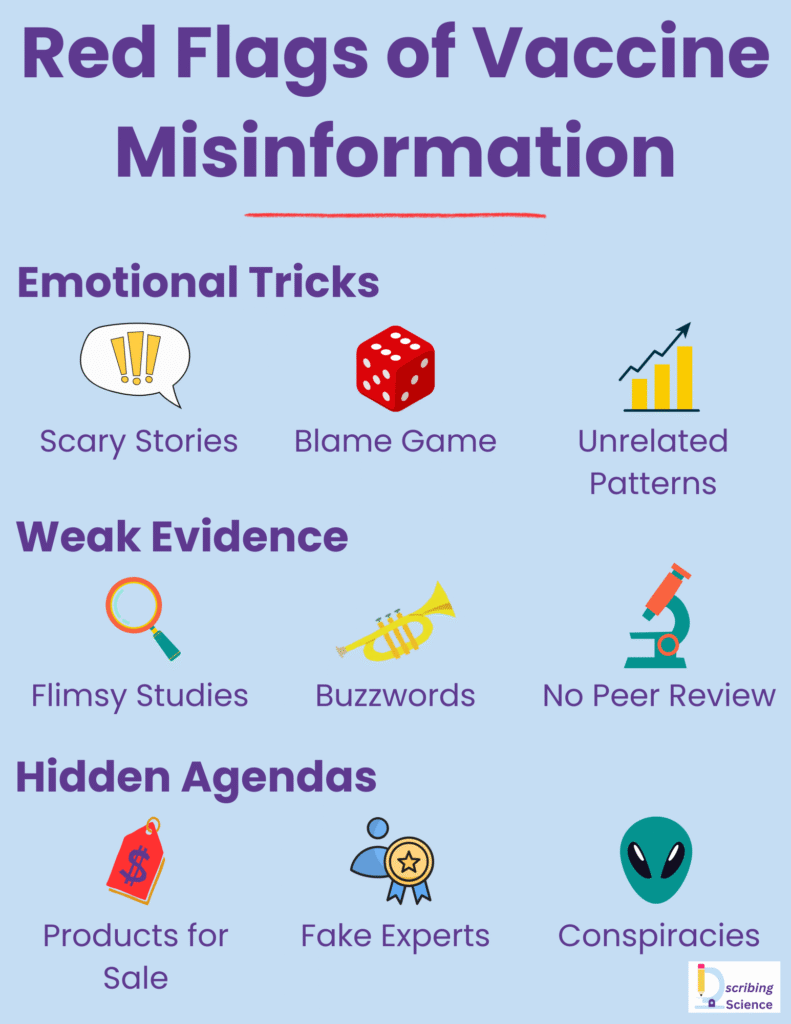Have you ever stayed up late with your phone glowing in the dark, scrolling through articles and Facebook threads, trying to figure out if vaccines are safe for your child? If so, you’re not alone.
With rumors and misinformation swirling in the headlines (and outbreaks swirling across the country), it can be hard to tell what’s real. This guide will give you some tips to separate fact from fiction.
Know the Stakes
If you’ve never seen measles or polio, it can be hard to imagine just how devastating they are. Here are some fast facts:
- Measles kills 3 out of every 1,000 children who catch it in high-income countries (and far more in places with limited medical care).
- Diphtheria kills up to 1 in 10 people who get it, and it’s even more deadly for young children.
- Before the vaccine, polio paralyzed more than 15,000 Americans each year.
These diseases may be rare in the United States now, but that’s only because vaccination keeps them at bay. Globally, vaccines prevent up to 5 million deaths every year. The risks are real, and so are the protections vaccines offer.
Who to Trust?
So with risks like these, who do you turn to for information?
Think about it this way:
If you want to know which shampoo to use, you’ll ask your hairdresser. If you need book recs, you’ll talk to a librarian. If your child needs extra help at school, you’ll call their teacher.
In other words, you go straight to the experts. They’re the ones who have spent years learning their trade. Sure, you could also ask your friends and family. They have good opinions too. But the thing about science is this: it’s complicated. It takes years to learn. Friends and family may mean well, but even the most loving advice can miss crucial details if it’s not grounded in medical training.
When it comes to vaccines, doctors are the experts. Some doctors specialize in vaccines, and they’re the super-experts. A lot of them work at places like hospitals and universities.

Talk With Your Child’s Doctor
The easiest place to start may be the closest to home: your pediatrician’s office. They’ve studied vaccines and keep up-to-date with the latest research, because that’s their job. They can answer most, if not all, of your questions about vaccines.
A helpful tip: bring your questions with you. Write them down. Screenshot that article that worried you. Doctors expect parents to ask.
Plus, your child’s doctor has watched them grow up and knows exactly what they’re allergic to, what to watch out for, and other special concerns. Nothing beats personalized medical advice.
Stick to Trustworthy Sources
Let’s face it: before you talk to the doctor, you’re probably going to do some Googling. It’s not as good as a doctor’s advice, but there are a lot of helpful resources. The problem is, there’s also a lot of misinformation. Some websites will purposely try to scare you, and others will try to sell you something.
When you do turn to the internet, the site you choose matters. Reliable sources include:
- World Health Organization (WHO)
- Centers for Disease Control and Prevention (CDC)
- American Academy of Pediatrics (AAP)
- American Medical Association (AMA)
- Hospital websites
- University websites
These organizations aren’t selling vitamins or pushing an agenda. They rely on peer-reviewed studies, global surveillance, and constant safety monitoring.
Tip: Look for websites that end in .gov or .edu. Some .org sites are trustworthy, but not all of them.
Learn How to Identify Misinformation
But how do you know if a website is trustworthy? Here are a couple key things to consider:
- Check the source: Is it .gov, .edu, hospital, or a major medical association?
- Check the date: Is it up-to-date?
- Check the author: Are they doctors, scientists, or anonymous bloggers?
- Check for citations: Do they link to actual studies or just opinions?
Watch Out for Red Flags
You know when you’re shopping online, and some sites seem kind of fishy? Maybe they have spelling errors or spam you with pop-ups. These are signs the sites might not be trustworthy.
Just like you learn to recognize the signs of sketchy online stores, you can learn to spot signs of misinformation. Red flags include:
Emotional Tricks
- Scary stories: These might begin along the lines of…“My neighbor’s cousin got a shot and…” The story might be scary, but that doesn’t mean it happened because of the vaccine.
- Buzzwords: “Toxic,” “poison,” or “cover-up” often signal fear over facts.
Weak Evidence
- The blame game: If a kid gets vaccinated and dies in a car crash on the way home, it’s not the shot’s fault. Not every tragedy that happens after a vaccine is caused by the vaccine itself.
- Unrelated patterns: Yes, autism rates have gone up over the last few decades. But so have other things, like college enrollment and coffee consumption. Just because there’s a pattern doesn’t mean things are related.
- A single study: Good science builds on hundreds of studies, not just one. That’s because more data paints a more detailed picture of what’s going on, just like more pixels in a photo create a sharper image.
- Small studies: The more participants in the study, the more solid the science. Bigger numbers make it easier to distinguish coincidence from patterns. For example, which would you trust more: a restaurant with ten reviews, or a thousand?
- No peer review: Studies that aren’t published in a reputable journal can be less reliable. An easy way to check if a study has been published is to search its name in PubMed.
Hidden Agendas
- Products for sale: If they’re pushing supplements, detox kits, or memberships, be cautious. They may care more about your wallet than your child’s health.
- Fake experts: People may sound confident, but may not have the expertise to back it up. Do they have a medical degree? Do other doctors trust them? Or are they a random influencer or celebrity?
- Conspiracy claims: “They don’t want you to know…” is a hallmark of misinformation.
- Black and white thinking: Very little in life is absolute. Watch out for words like “always” and “never”—these kind of claims may be missing the mark.

The Big Picture
Doing your own research is smart, but it should never be a solo journey. Pair your online reading with expert guidance from your child’s doctor. That way, you get both the big picture and the details that matter for your family.
By leaning on trustworthy sources, spotting red flags, and asking good questions, you can make decisions that don’t just protect your child—they protect vulnerable babies, grandparents, and neighbors too.
Vaccination is more than a medical choice. It’s an act of cooperation, a way of fighting back against hidden threats, and a step toward a healthier, more resilient community for us all.
Resources to Get You Started
What’s in a Vaccine? (World Health Organization)
Vaccine Science: How Are Vaccines Made? (Children’s Hospital of Philadelphia)
How Vaccines Are Developed and Approved for Use (Centers for Disease Control and Prevention)
Vaccines (Johns Hopkins)
About Vaccines for Your Children (Centers for Disease Control and Prevention)
Autism and Vaccines (Centers for Disease Control and Prevention)
Vaccines and Immunization: Vaccine Safety (World Health Organization)
Vaccine Safety and Your Family (Children’s Hospital of Philadelphia)
Vaccine Safety: Examining the Evidence (HealthyChildren.org)
Vaccines: The Myths and the Facts (American Academy of Allergy, Asthma, and Immunology)
The Science of Vaccine Safety in the U.S. (Johns Hopkins)
Childhood Vaccines: Tough Questions, Straight Answers (Mayo Clinic)
What Every Parent Should Know About Immunizations (Stanford Medicine)
Measles Vaccination: Know the Facts (Infectious Diseases Society of America)
Want to see more content like this? Check out The Side Effect of Measles That No One’s Talking About.


Leave a Reply